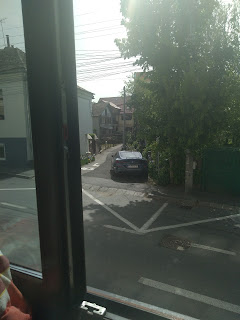- Get link
- Other Apps
Posts
Showing posts from May, 2020
- Get link
- Other Apps

THE DANTE PROJECT September 13, 1321 or September 14, 1321 Ravenna , Italy notable works · “The Divine Comedy” · “La vita nuova” · “Literature in the Vernacular” · “The Banquet” movement / style · dolce stil nuovo subjects of study · political philosophy · church and state Early life and the Vita nuova Most of what is known about Dante’s life he has told himself. He was born in Florence in 1265 under the sign of Gemini (between May 21 and June 20) and remained devoted to his native city all his life. Dante describes how he fought as a cavalryman against the Ghibellines , a banished Florentine party supporting the imperial cause. He also speaks of his great teacher Brunetto Latini and his gifted friend Guido Cavalcanti , of the poetic culture in which he made his first artistic ventures, his poetic indebtedness to Guido Guinizelli, the origins of his family in his great-great-grandfather, Cacc
- Get link
- Other Apps
When we think of Elizabethan England, authors like Shakespeare and Marlowe spring readily to mind. But this is by no means the whole story. Here at Penshurst Place in Kent, a family of writers reshaped the literary landscape of the time. Penshurst Place has been the home of the Sidney family since 1552. And thanks to the Viscount De L'Isle and staff at Penshurst, we will be using this beautiful country house to study the Sidney family writings. In this course, you will encounter extracts from the Sidney writings with commentary by international experts. By studying readings and performances in a deeply resonant historic setting, you will learn about the Sidneys' extraordinary literary impact and discover the creative power of Penshurst itself. The Sidneys, no less than Shakespeare, had quill power, the ability to shape the world around them through writing. You will study extracts from the prose, poetry, letters, and translations, and the drama of five Sidney wri
- Get link
- Other Apps
Some people know that they love poetry. And some people find it a little bit overwhelming, a little bit worrying. And maybe you fall into one camp, or you fall into the other. Or maybe you fall somewhere in between. But I hope that something that this course has given you is a sense of the value of studying poetry, what it can give you, how it can change the way you think and the way that you are. And also, I hope it's given you some ways into poetry through thinking about feelings and patterns and puzzles and the connections between these different ways of approaching poetry. It's not about cracking a code or solving a riddle. It's about having an experience that causes us to reflect and think and enjoy the world in new ways. I'm hugely grateful to the students who've come and contributed to this course, who've given us their ideas about poetry and who've spoken so eloquently about what the subject English literature means to them and about wh
- Get link
- Other Apps
Not all poetry has to be understood in full in order to be enjoyed. Patterns and puzzles are a really important aspect of the emotional experience. I wonder, what do we gain from reading poetry? What's reading poetry for? Why do we do it? When we read poetry I think you gain an open mind to a lot of things. Everything's up for interpretation, whereas prior to coming to university everything's considered clear cut and black and white. So I like that poetry, reading it, one answer isn't the right answer. There's lots of different answers. And I think that gives an open mindedness in life in general. There's many different routes and many different ways of seeing things. 0:52 Skip to 0 minutes and 52 seconds Yeah, it's a really kind of democratic process, isn't it? When we've got the same text in front of us and we all bring ourselves and our experiences to bear on it then there's that wonderful experience of really careful listening t
